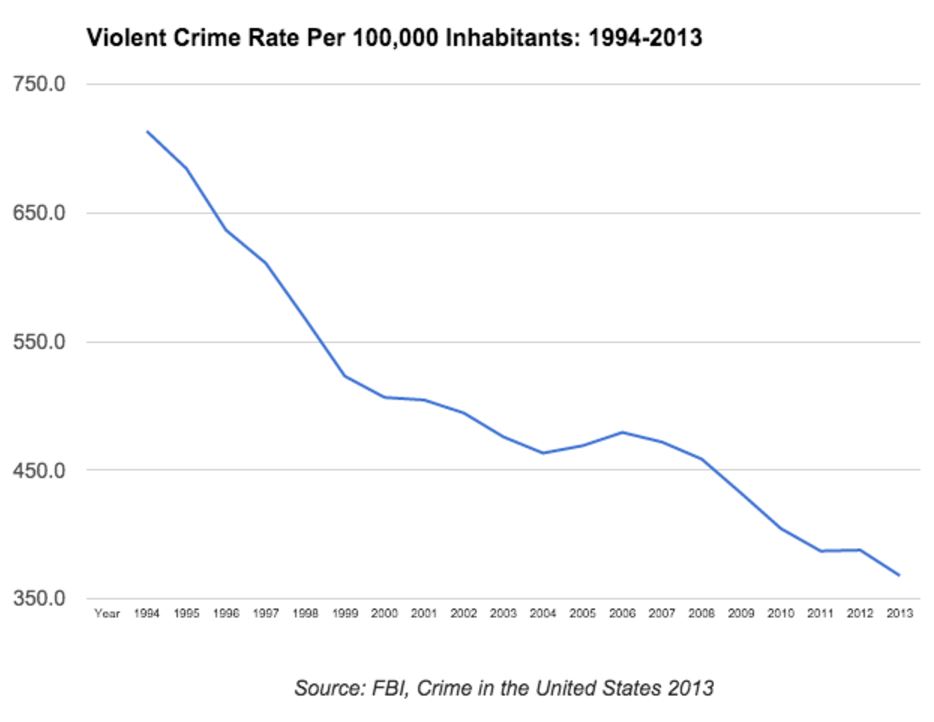Moms everywhere have probably heard that playing violent video games leads to greater violence in real life. This has been used as an argument against video games for many years. Good parenting requires that parents monitor and filter the entertainment content their children have access to, but it is also important to have real knowledge behind the decisions and not make blanket statements based mostly on unproven fear-mongering.
Association Between Videogames and Violence
We can start by looking at some basic trends and statistics. It goes without saying that more kids, teens and adults play video games now than ever before. It also goes without saying that the games they are playing tend to be more mature and more graphically realistic than games played by any previous generation. If the idea behind violent video games causing real violence were true, then this fact alone would lead one to believe that kids and teens must be more violent than ever.
In fact, the opposite is true. According to Attorney Matthew Gould, incidents of violent crime have been decreasing for more than 25 years in Canada, the US, and Australia – the same 25 years that saw the introduction of every Mortal Kombat installment, every Grand Theft Auto installment, every game in the James Bond universe, and 14 Call of Duty titles (we checked).
Of course this is not what your evening news would have you believe, but this is corroborated by the Bureau of Justice Statistics. While the news may be more adept than ever at sensationalizing the violence that does occur, people overall are less violent.
Let’s Look at the Studies
There are studies that have tried to prove the association, but one must look very closely at them to be sure the information they provide is accurate. It is important not to take any study at face value, and this is especially true with this argument.

There are some studies that show a link between violent video games and temporarily more violent thoughts or feelings. While this isn’t necessarily good, it is much different than video games actually causing violence. Thoughts and emotions are fleeting, especially in children. How many times have you heard your child scream “I hate you!” because they were mad. Of course, they don’t really hate you, and they get over it without having an actual or radical shift in their behavior.
Absorbing any form of media may temporarily alter our feelings or moods. One could even argue that is what it is intended to do. The author of a book or director of a movie might hope that a sad scene would make the audience sad or that a terrific battle scene between the hero and villain would lead to feelings of excitement and aggression. That doesn’t mean that sad content leads to depression or that violence and conflict in media leads to crime.
This is because there are other factors at work on long-term human behavior. Most studies don’t account for these other factors or control their experiment for them. This means no clear relationship can be made between videogames and violence in those studies. The studies that did control for those other factors actually found that violence decreased in gamers compared to non-gamers.
Games as an Outlet for Aggression and Emotion
Some researchers and psychology experts agree that the opposite might be true of video games and violence as suggested in the studies. Video games may actually serve as a healthy outlet for aggressive emotions or tendencies. These emotions are going to occur anyway as a result of regular life events, and every psychologist will tell you it’s important to have a healthy outlet for emotions. Would you rather your teenager yell and break things to get their emotions out, or would you rather them go play a few rounds of Call of Duty?
Age-Appropriateness
One big issue with violence and video games is that it has become mixed and blurred with problems of age-appropriate content. The violence in Call of Duty probably isn’t an issue for a sixteen-year-old or an adult, but it probably isn’t good for a five or seven-year-old to be playing.
The question maybe shouldn’t be about banning such games entirely or taxing them until no developer wants to bring them to market. They are a big part of the market and entertainment media enjoyed by millions of people. That doesn’t negate a parent’s responsibility to ensure their children see only age-appropriate content. Video game ratings are the best and perhaps most ignored method of doing this. Those ratings exist for a reason. If more parents understand them and follow them, it is unlikely they will be exposing their children to inappropriate content.
Instead of being caught up in the rhetoric about the negative effects of violent video games on kids and crime, parents are better served examining the real facts and evidence to be found. Almost all true studies and research have found either no effect or even slight positive effects on the mental health of gamers. Instead, parents are advised to still monitor game content for age-appropriateness and follow the given ratings.
